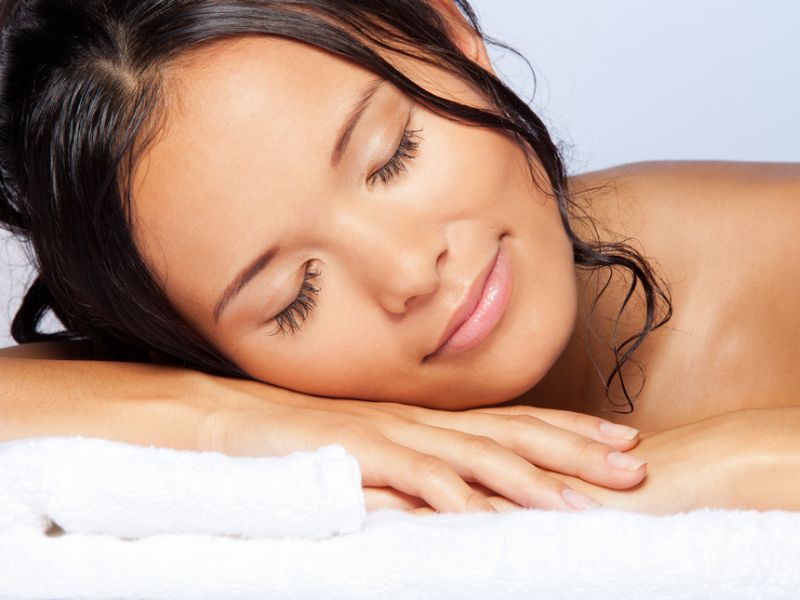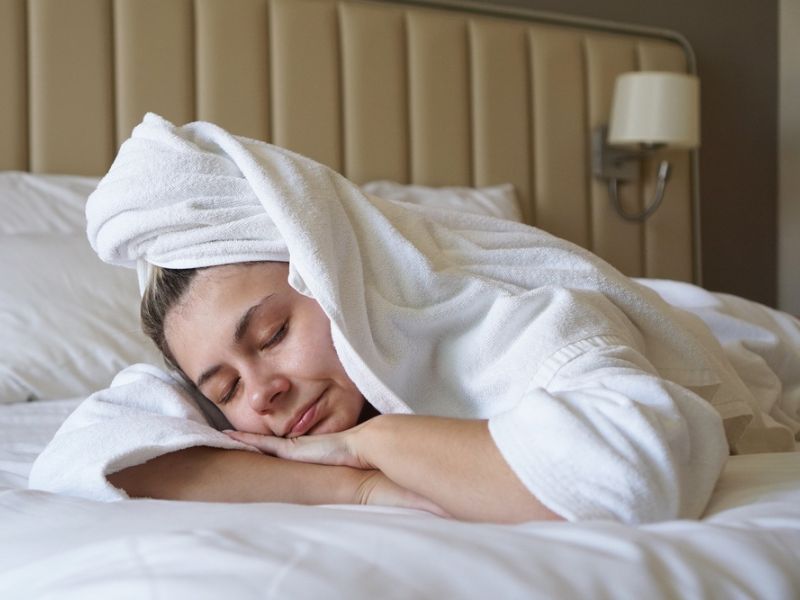We’ve all experienced those rushed moments after a late-night shower when drying our hair feels like an unnecessary chore. It’s tempting to crawl into bed with damp tresses, hoping they’ll miraculously dry by morning. However, if you’re guilty of this habit, we have some news: sleeping with wet hair might not be as harmless as it seems.
While it’s true that occasional damp sleeping won’t cause irreparable damage, making it a routine can lead to a host of problems. One of the primary concerns is the risk of fungal and bacterial growth on the scalp. When hair is wet, it becomes a breeding ground for microorganisms, and prolonged exposure during sleep only exacerbates the issue. It can lead to scalp infections, itchiness, and even hair loss in severe cases.

Image Credit: Shutterstock/Sergey Novikov
Another issue with sleeping with wet hair is the damage it can cause to the hair shaft. Hair is more susceptible to breakage and stretching when wet, and the friction between your hair and the pillow can cause tangles and knots. Over time, this can result in split ends and a generally lackluster appearance.
For individuals with long or curly hair, the problems can be even more pronounced. As the hair rubs against the pillow, it can become tangled and matted, leading to the dreaded “bedhead” look in the morning. It can be incredibly frustrating for those with a busy morning routine, leaving them with little time for proper hair care.

Image Credit: Shutterstock/Natali Brillianata
To circumvent these problems, embracing healthy hair practices before bed is crucial. If you’re short on time, consider using a hairdryer on a low setting to speed up the drying process. Alternatively, gently towel-dry your hair and allow it to air dry before hitting the sheets. Investing in a silk or satin pillowcase can also help reduce friction and minimize hair damage during sleep.